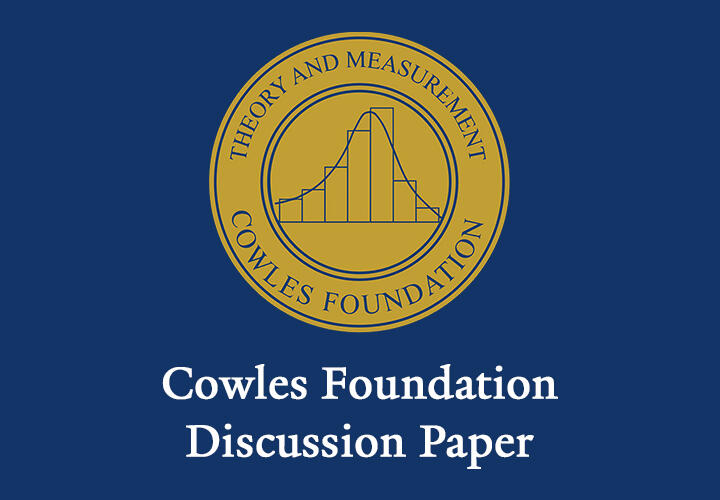Kaivan Munshi is currently the Frederick W. Beinecke Professor of Economics at Yale University and a Faculty Affiliate of the Economic Growth Center. He was previously the Frank Ramsey Professor of Economics at the University of Cambridge. Munshi’s research career has been devoted to the analysis of social institutions and their interaction with economic activity. His research has been published in the American Economic Review, Journal of Political Economy, Quarterly Journal of Economics, and the Review of Economic Studies. He was the recipient of the Infosys Prize in the Social Sciences in 2016.
Munshi’s long-term research program examines the multifaceted role played by informal community institutions in the process of development. The first stage in this research was devoted to providing credible empirical evidence that social norms and community-based networks have large effects on individual decisions and outcomes in developing economies. The second stage studied how networks can support or restrict the mobility of their members, depending on the context, with important consequences for development. Much of this work is based in India, where the caste is a natural social unit around which networks serving different economic functions (such as providing jobs and credit for their members) can be organized.
Since joining the Yale faculty in 2019, Munshi has continued to advance his long-term research program on social networks, exploring the historical origins of private enterprise in India and in China. In addition, he has extended his research in two directions: First, he has moved beyond the analysis of intra-group interactions to look at interactions between ethnic groups. His recent research in this area studies the status game between upper castes and lower castes in rural India, showing that status considerations help explain the withdrawal of women from the labor force that has accompanied economic growth in that country. A second line of research, at the intersection of economics and evolutionary biology, studies how adaptation to conditions of scarcity in the pre-modern economy can explain two recently documented facts: the weak association between nutritional status and income in developing countries, and the unusually high risk of diabetes among normal weight individuals in those countries.
